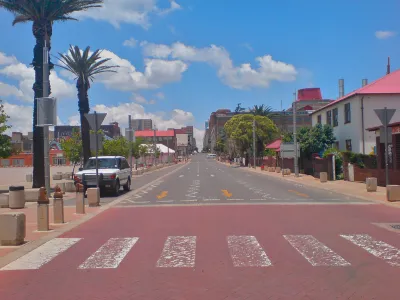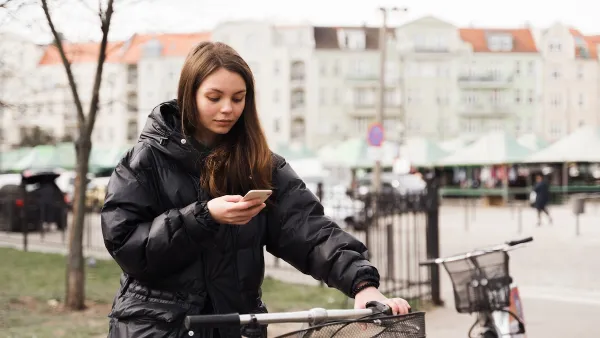The placement of new bike lanes in the city of Johannesburg has become yet another symbol of inequality between rich-white and poor-black residents.

Johannesburg's new mayor Herman Mashaba has vowed to stop the construction of bike lanes in the city. Ryan Lenora Brown of The Independent (originally reported in The Washington Post) reports that the mayor's statement, as part of his inaugural address in September, comes in response to the poverty that's pervasive in the city and the belief that the bike lanes will only benefit wealthier residents. Brown writes that the city's poorer residents, who live in the city's distant, sprawling suburbs, currently spend upwards of 20 percent of their income on transportation to and from work.
“Shame on white people for demanding bicycle lanes while blacks use bucket toilets,” said Julius Malema, leader of the populist left opposition party, the Economic Freedom Fighters, in the run-up to South Africa’s local government elections in August. His words conjured an image of the upper-middle-class leisure cyclists who zip through suburban neighbourhoods on weekend mornings in a blur of brightly coloured spandex.
They aren’t all white, but for Malema, in a country where fewer than 1 percent of white people live in poverty but nearly two-thirds of blacks do, the symbolism was clear. No government he was a part of, he pledged, would put bike lanes before safe housing, paved roads or other basic infrastructure the city’s poor so desperately need.
Proponents of the bike lanes note that the bike lanes provide a benefit to the city's poor who have no other options for commuting, given the high cost of transport. However, Brown writes, bicycle ownership among the city's poor is very low, with few people knowing how to even ride a bike.
FULL STORY: How Bike Lanes Became an Issue of Race and Class in Johannesburg

Analysis: Cybertruck Fatality Rate Far Exceeds That of Ford Pinto
The Tesla Cybertruck was recalled seven times last year.

National Parks Layoffs Will Cause Communities to Lose Billions
Thousands of essential park workers were laid off this week, just before the busy spring break season.

Retro-silient?: America’s First “Eco-burb,” The Woodlands Turns 50
A master-planned community north of Houston offers lessons on green infrastructure and resilient design, but falls short of its founder’s lofty affordability and walkability goals.

Test News Post 1
This is a summary

Analysis: Cybertruck Fatality Rate Far Exceeds That of Ford Pinto
The Tesla Cybertruck was recalled seven times last year.

Test News Headline 46
Test for the image on the front page.
Urban Design for Planners 1: Software Tools
This six-course series explores essential urban design concepts using open source software and equips planners with the tools they need to participate fully in the urban design process.
Planning for Universal Design
Learn the tools for implementing Universal Design in planning regulations.
EMC Planning Group, Inc.
Planetizen
Planetizen
Mpact (formerly Rail~Volution)
Great Falls Development Authority, Inc.
HUDs Office of Policy Development and Research
NYU Wagner Graduate School of Public Service



























